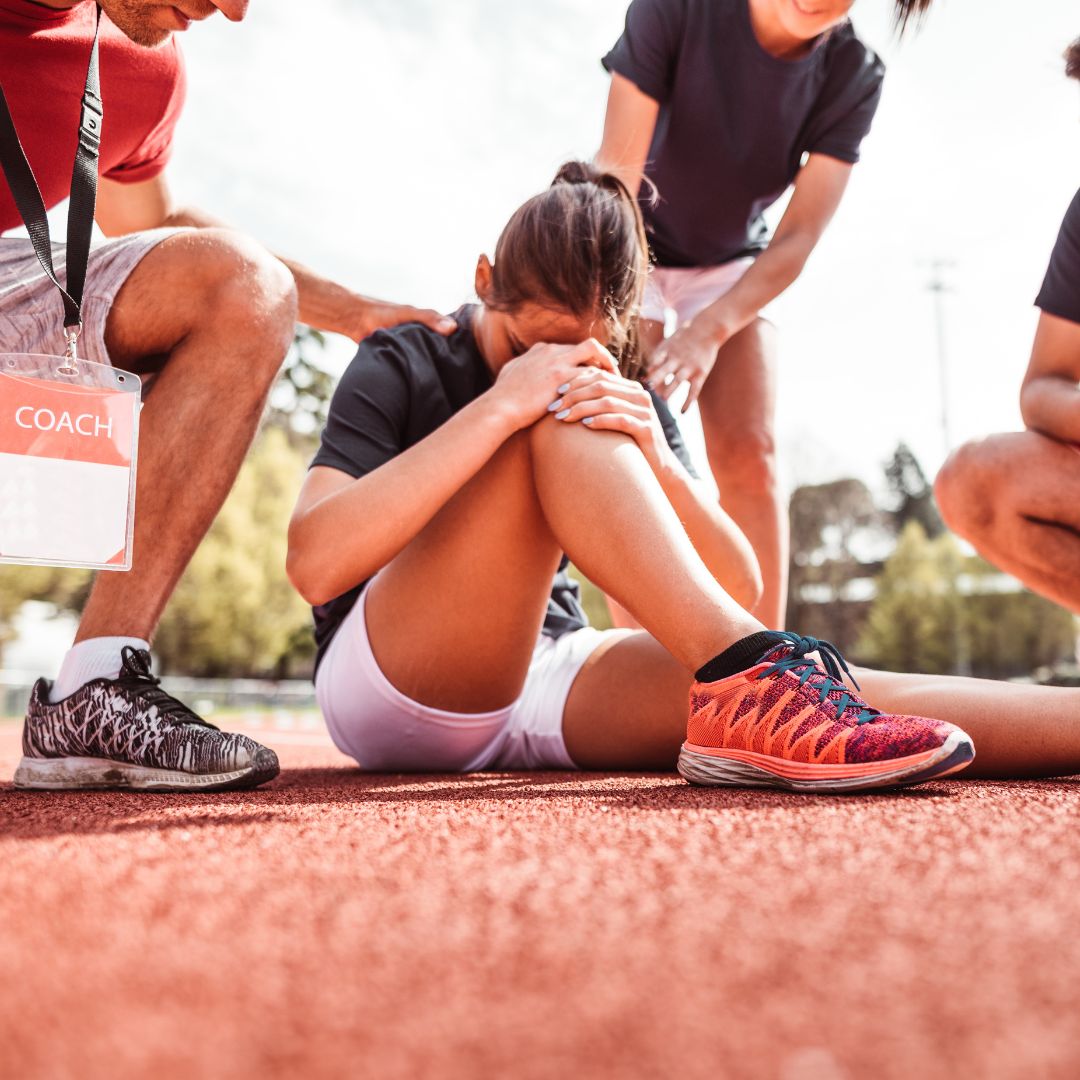Sports Psychologist in Laurel, MD
You want to work on your mental game, but how do you train your brain?
At MindBalanceSPORT, We Train The Other Half Of The Athlete.
You want to work on your mental game, but how do you train your brain?
Mental training does not get much media attention, but at MindBalanceSPORT we know it is a game changer. The mental skills you will learn at MindBalanceSPORT are generalizable in the classroom, in sport and in life!
We know that mental skills can be successfully taught, even at an early age.
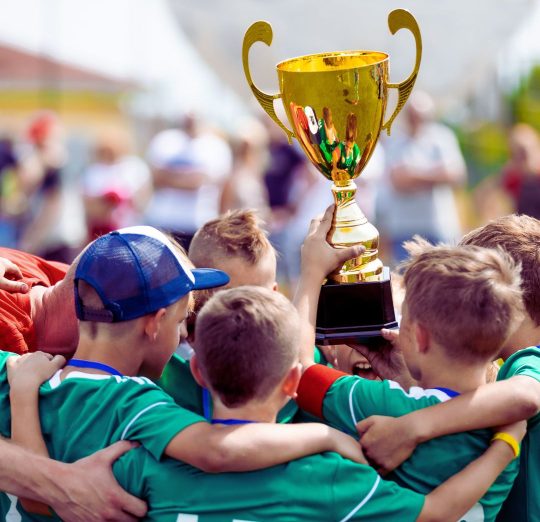
Our Services
Meet the Team


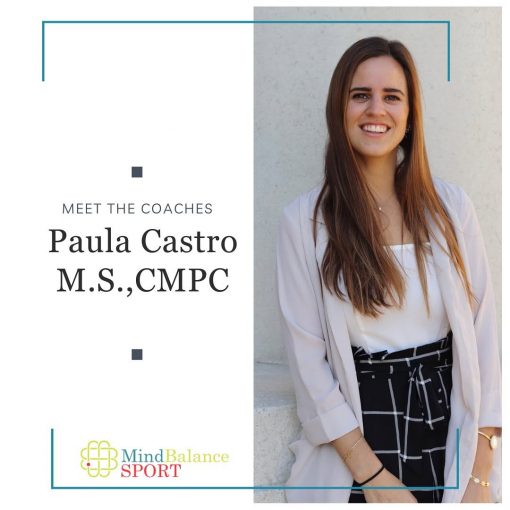
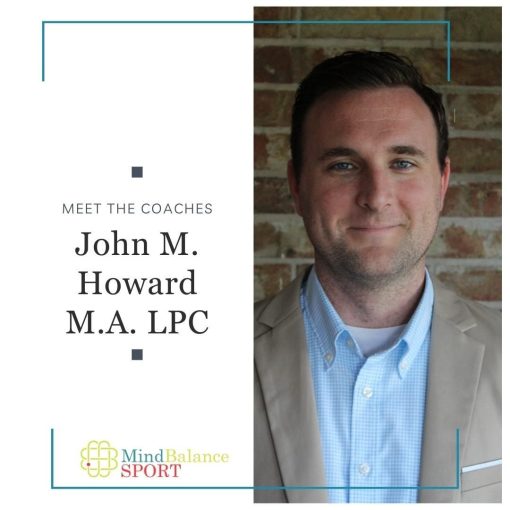
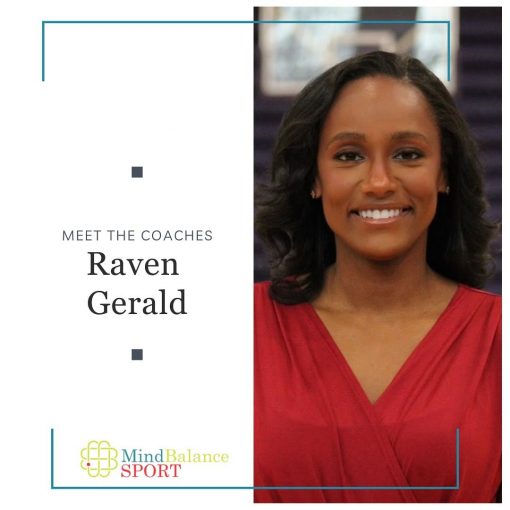
testimonials
Athlete Stories: Real Comebacks, Real Results

Emma, a high school basketball player, tore her ACL in the middle of her junior season. After surgery, she struggled with self-doubt and fear every time she stepped back on the court. Through sport psychology training, she learned visualization techniques and confidence-building exercises that helped her regain trust in her knee. When she returned for her senior season, she didn’t just play—she led her team to the playoffs.

Carlos, a soccer player, suffered a stress fracture in his foot and had to miss half of his season. Sitting out was mentally tougher than the pain itself. We worked on mental engagement strategies to keep him sharp—studying game film, setting small rehab goals, and using mental imagery to stay ready. When he was finally cleared, his confidence never wavered.

Jordan, a track athlete, strained her hamstring before a major competition. She feared losing speed and falling behind competitors. Instead of focusing on what she couldn’t do, we redirected her energy toward mental preparation, using self-talk and goal setting to keep her confidence strong. When she returned, she set a new personal record.
EXCELLENTTrustindex verifies that the original source of the review is Google. It was a great help to my 14-year-old competitive volleyball player daughter. Raven was great to understand and connect with her from start to end. We will continue with our sessions as needed.Trustindex verifies that the original source of the review is Google. Great results! I’ve loved working with Paula. Our sessions have greatly improved both the physical and mental aspects of my tennis game. I’m playing better and having more fun! Highly recommend!Trustindex verifies that the original source of the review is Google. Our family had a wonderful experience with Paula Castro. We needed some additional confidence in a particular area/sport and Paula helped get us there. We know who to turn to if we need help again. She’s been a Blessing. Thank you, Paula!Trustindex verifies that the original source of the review is Google. I highly recommend MindBalanceSPORT. Our son works with John Howard. John is very caring, positive, and effective at working with teenagers. John is an adept listener and created an individualized plan tailored to our son’s personality. After just a few sessions with John, we noticed a significant improvement in our son’s motivation and mental approach to sports and life in general. Our son looks forward to meeting with John and tells us that he benefits immensely from their connection.Trustindex verifies that the original source of the review is Google. Paula Castro is an outstanding professional on the field. She has helped my daughter improve her confidence, preparation, and thanks to these session she feels more prepared and motivated. Paula takes the time also to share (what she can) and align with us as parents to be on the same page. Strongly recommended!Trustindex verifies that the original source of the review is Google. MineBalanceSPORT has quickly become the area's expert in sports psychology. Their reputation is well deserved given their incredibly thoughtful, scientifically based approaches to treating performance-related conditions, and I have only heard glowing, positive feedback from those who have engaged in their program. I will also add that Drs. Jones and Chirby presented to us (our group comprises of 15+ doctors and masters level clinicans) about their program and impressed us all with their level of expertise and passion for this field. I give them my highest recommendation.Trustindex verifies that the original source of the review is Google. Dr. Jones was beyond helpful to me throughout our time together. If you are an athlete and you need advice or assistance this is the place to come to. She completely changed my outlook and mindset in a time when I needed her most. I look forward to staying in touch with her and am forever thankful for her expertise.Trustindex verifies that the original source of the review is Google. Paula has been a huge help with my daughter Morgan coming off her injury. It’s been 18 months since she’s played basketball and she’s thriving because I know Paula is guiding her the right direction. As a mother, I’m extremely gratefulTrustindex verifies that the original source of the review is Google. If you are looking for Amazing Psychologists who can help support you in your sports performance, you need to call MindBalanceSPORT! Dr. Chirby and her colleagues are a wealth of knowledge, they have so many helpful techniques for mind balance, and they have so much compassion for the communities that they serve! Highly recommend!!!
Recovery
While Everyone Has A Physical Ceiling, There Is No Mental Ceiling.
Transforming Team Conflict into Cohesion with Sports Counselling in Laurel, MD
Transforming Team Conflict into Cohesion with Sports Counselling in Laurel, MD
Team conflict is an inevitable part of any group dynamic, particularly in high-pressure environments like competitive sports. While disagreements and tensions may arise among teammates due to differing personalities, goals, or expectations, these conflicts can also present opportunities for growth and improved team cohesion when approached strategically. Sports psychologists play a pivotal role in turning these challenges into strengths.
Understanding the Nature of Team Conflict
- Differences in strategies or approaches to achieving team goals.
- Disagreements over roles and responsibilities within the team.
- Interpersonal clashes rooted in personality differences or emotional reactions.
- Miscommunication or lack of trust between teammates.
While task-related conflicts can often be constructive if handled effectively, relationship conflicts tend to undermine morale and performance if left unchecked.
How Sports Psychologists Address Team Conflict
- Promoting open dialogue among athletes to share perspectives and clear misunderstandings.
- Teaching active listening skills to enhance mutual respect and understanding.
- Equipping teams with tools to navigate disagreements constructively (e.g., problem-solving frameworks).
- Mediating disputes to ensure they do not escalate into long-term issues.
- Encouraging athletes to view situations from their teammates’ perspectives.
- Facilitating activities that build trust and reinforce shared goals.
Strategies for Strengthening Team Cohesion
- Shared Vision and Goals:
Creating alignment around common objectives fosters unity and reduces friction. - Defined Roles Within the Team:
Clarifying each athlete’s responsibilities ensures everyone understands their contribution toward collective success. - Team-Building Exercises:
Structured activities designed to improve collaboration and camaraderie among teammates:
| Exercise | Purpose | Example Activity | |——————————|—————————————-|———————————–| | Trust-Building Activities | Cultivate mutual trust | Trust falls, blindfold navigation | | Problem-Solving Challenges | Promote teamwork under pressure | Escape room challenges | | Communication Drills | Enhance clarity in team interactions | Group discussions on scenarios | - Celebrating Small Wins Together:
Recognizing achievements—big or small—reinforces positivity and strengthens bonds between players.
The Benefits of Resolving Conflict Effectively
- Greater innovation through diverse perspectives.
- Improved communication channels across the entire team.
- Stronger interpersonal relationships rooted in trust.
- Enhanced performance stemming from unified efforts toward shared objectives.
By effectively transforming conflict into opportunities for growth, sports psychologists help athletes unlock their full potential—not only as individuals but as integral parts of a cohesive team working towards collective success.
Maximizing Team Cohesion with Sports Psychologists in Laurel, MD
Enhancing Team Trust with Performance Psychology in Laurel, MD
- Team-Building Exercises: Group activities designed to improve communication and encourage mutual reliance.
- Shared Goal Setting: Facilitating discussions where athletes collectively define their objectives fosters unity.
- Conflict Resolution Training: Equipping teams with methods for resolving disagreements constructively.
Maximizing Sport Performance Training in Laurel, MD
- Active listening exercises to ensure that players understand one another’s perspectives.
- Role-playing scenarios that mimic high-pressure situations requiring clear communication.
- Encouraging open feedback loops so players feel safe expressing concerns without fear of judgment.
Enhancing Role Clarity with a Sports Mental Coach in Laurel, MD
| Problem | Psychological Strategy | Outcome |
| Overlapping Roles | Individual counseling & group workshops | Reduced confusion |
| Lack of Role Understanding | One-on-one role definition sessions | Clearer expectations |
| Resentment Caused by Role Changes | Change management techniques | Increased adaptability |
Navigating Group Dynamics with Support from Sports Psychiatry in Laurel, MD
- Teaching mindfulness techniques to reduce individual stress reactions.
- Encouraging collective pre-performance routines that boost group morale.
- Analyzing past conflicts under stressful conditions to prevent recurrence.
Finding a Sports Psychologist Near Me to Promote a Positive Team Culture
1) Establishing traditions (e.g., pre-game rituals). 2) Celebrating small wins both individually AND collectively throughout long seasons too
Enhancing Team Cohesion Through the Expertise of Sports Psychologists
Team cohesion is a critical element in achieving success in sports. It refers to the degree to which team members work together effectively towards shared goals. While technical skills and physical training are often emphasized, the mental and interpersonal dynamics within a team can make or break overall performance. Sports psychologists play a pivotal role in enhancing team cohesion by addressing underlying issues and fostering a positive, collaborative environment.
Understanding Team Cohesion
Team cohesion can primarily be broken into two dimensions:
1. Task Cohesion: The ability of team members to collectively work toward achieving specific objectives or tasks.
2. Social Cohesion: The bonds of friendship, trust, and camaraderie that develop among teammates.
Both dimensions are essential for optimal performance. A lack of task cohesion may lead to disorganized efforts on the field or court, while weak social cohesion often causes internal conflicts and communication breakdowns.
How Sports Psychologists Enhance Team Cohesion
- Facilitating Open Communication
Clear communication is essential for teamwork. Sports psychologists help athletes improve their ability to express concerns, provide constructive feedback, and resolve conflicts without damaging relationships. - Conflict Resolution Strategies
Conflict is inevitable in any group setting, but unresolved disputes can harm team morale. By teaching conflict resolution skills, sports psychologists enable athletes to address disagreements constructively. - Goal Alignment Exercises
Misaligned individual goals can reduce collective focus. Psychologists guide teams through exercises that align personal aspirations with overarching team objectives. - Building Trust Among Teammates
A lack of trust undermines cooperation on the field. Through trust-building activities like group problem-solving tasks or mutual appreciation sessions, psychologists strengthen inter-personal bonds.
Tools Used by Sports Psychologists
| Technique | Purpose |
| Team-Building Exercises | Improve collaboration and interpersonal relationships |
| Group Visualization | Reinforce shared goals through mental rehearsal |
| Personality Assessments | Identify individual traits that influence team dynamics |
| Feedback Workshops | Encourage honest discussions about strengths and areas for improvement |
The Benefits of Improved Team Cohesion
When teams actively work on cohesion through sport psychology interventions, they experience multiple benefits:
– Enhanced Performance: Unified teams execute strategies more efficiently under pressure. – Reduced Stress: Strong connections among teammates create a support network during challenging times. – Increased Motivation: Shared goals foster commitment across all players. – Resilience During Setbacks: Teams with high social cohesion recover faster from losses or poor performances.
By focusing on both mental strategies and interpersonal dynamics, sports psychologists ensure that individuals not only perform better as athletes but also thrive as cohesive units. Teams investing in psychological expertise gain an invaluable edge—turning potential challenges into opportunities for growth both on and off the field.
The Role of Sport Psychology Consultants in Elevating Athlete Success
Sport psychology consultants play a critical role in helping athletes achieve and sustain success. Their expertise goes beyond addressing mental barriers; they also provide strategic tools and insights that enhance overall athletic performance, foster personal growth, and promote team cohesion. Below is an exploration of the ways in which these professionals contribute to the success of individuals and teams.
Key Roles of Sport Psychology Consultants
- Enhancing Mental Skills
Sport psychology consultants train athletes to sharpen mental skills essential for peak performance. These include: - Focus and Concentration: Techniques to maintain attention during high-pressure situations.
- Goal-Setting: Structured planning to achieve realistic and measurable performance targets.
- Visualization: Using imagery to mentally rehearse successful outcomes.
- Building Emotional Resilience
Emotional resilience is crucial for navigating the highs and lows associated with competitive sports, including injuries or setbacks. Consultants work on: - Teaching stress management techniques like mindfulness or deep-breathing exercises.
- Encouraging positive self-talk to combat negative thinking patterns.
- Developing coping mechanisms for overcoming challenges.
- Facilitating Communication Within Teams
On a team level, effective communication is vital for trust, collaboration, and success: - Mediating conflicts between teammates or between athletes and coaching staff.
- Encouraging open dialogue through workshops or one-on-one sessions.
- Guiding teams toward shared goals by aligning individual mindsets with collective objectives.
Benefits of Collaboration with Sports Psychologists
| Benefit | Individual Athletes | Teams |
| Improved Confidence | Greater belief in their abilities | Trust among members |
| Reduced Performance Anxiety | Tools like controlled breathing | Fewer misunderstandings |
| Consistent Performance | Focused strategies for consistency | Cohesion across diverse personalities |
| Enhanced Motivation | Clearer personal goal alignment | Unified purpose |
Tailored Approaches for Different Athletes
- Skill Level: For youth athletes, sessions may focus on foundational confidence-building; elite performers might concentrate on advanced mental training techniques like optimizing emotional regulation under pressure.
- Sport Type: Team sports (e.g., soccer) often emphasize interpersonal dynamics, while individual sports (e.g., tennis) zero in on personal accountability.
- Cultural Influences: Understanding cultural backgrounds can shape how interventions are delivered effectively.
Why Athletes Need Support Beyond Physical Training
Athletic success requires more than physical prowess; the mental side is equally important, as it impacts how athletes respond to challenges such as competing under pressure, maintaining motivation during long seasons, or recovering from failure. A sport psychology consultant bridges this gap by offering tools that ensure an athlete’s mental game matches their physical abilities.
By integrating psychological strategies into their routine preparation, athletes—whether professionals or amateurs—can experience improved performance outcomes while fostering a balanced approach to both competition and personal well-being.
How Sports Psychologists Help Athletes Achieve Mental Toughness and Resilience
Athletic success is often defined by the ability to perform under pressure, recover from setbacks, and remain focused in high-stakes situations. Sports psychologists play a crucial role in helping athletes cultivate mental toughness and resilience—key components for performing at their best. This involves equipping athletes with mental skills, strategies, and tools for navigating challenges both on and off the field.
What is Mental Toughness?
Mental toughness refers to the psychological attributes that allow athletes to consistently perform at a high level despite pressure, adversity, or fatigue. Some core characteristics of mentally tough athletes include:
– Emotional control: The ability to manage emotions under stress.
– Self-confidence: Belief in one’s abilities even during challenging moments.
– Focus: Maintaining concentration on goals despite distractions or setbacks.
– Perseverance: Persisting through difficulties without giving up.
How Resilience Differs from Mental Toughness
While mental toughness focuses on enduring immediate challenges, resilience refers to the capacity to recover and adapt after facing adversity or failure. A resilient athlete bounces back stronger after injury, defeat, or personal challenges—using such experiences for growth rather than allowing them to hinder future performance.
Tools Sports Psychologists Use to Build Mental Toughness
- Athletes are guided through mental imagery exercises where they envision themselves successfully completing tasks or overcoming obstacles.
- This practice improves confidence by creating a “blueprint” for success in the brain.
- Breaking long-term objectives into smaller milestones helps athletes stay motivated.
- Setting SMART goals (Specific, Measurable, Achievable, Relevant, Time-bound) fosters clarity and focus.
- Mindfulness teaches athletes how to remain present during high-pressure situations.
- Techniques like deep breathing and body scanning reduce anxiety while improving concentration.
- Cognitive-behavioral techniques help athletes challenge negative self-talk (e.g., “I can’t do this”) by replacing it with constructive statements (e.g., “I’ve prepared for this moment”).
- Teaching relaxation techniques such as progressive muscle relaxation helps reduce physical tension caused by stress.
- Developing pre-performance routines ensures consistency under pressure.
Building Resilience Through Long-Term Support
| Strategy | Benefits |
| Post-Competition Debriefs | Helps athletes learn from mistakes without dwelling on failures |
| Strengthening Social Support | Encourages team members or family connections as sources of encouragement |
| Promoting Self-Efficacy | Builds belief that obstacles can be overcome with effort |
Mental toughness and resilience not only enhance athletic performance but also improve overall well-being by helping athletes navigate stress more effectively. By incorporating these practices into training regimens with guidance from sports psychologists, athletes can thrive in their pursuit of excellence while staying grounded amidst challenges.
Understanding the Impact of Sports Psychologists on Individual and Team Performance
Sports psychologists play a pivotal role in shaping both individual and team performance by addressing mental, emotional, and interpersonal dynamics within athletic settings. Their work extends beyond improving physical skills and focuses on optimizing an athlete’s mental state to enhance overall performance outcomes, leading to success both on and off the field.
Key Areas of Impact
- Enhancing Mental Skills
Sports psychologists equip athletes with essential mental tools such as: - Goal setting: Helping athletes define clear, achievable objectives for their careers or specific events.
- Visualization techniques: Guiding athletes to mentally rehearse perfect performances to build confidence.
- Concentration improvement: Training individuals to block out distractions during critical moments.
- Reducing Stress and Anxiety
Competitive sports can be mentally taxing. Sports psychologists provide strategies such as mindfulness practices, relaxation techniques, and cognitive-behavioral interventions to manage pre-performance anxiety. - Building Confidence
Confidence directly influences athletic performance. By identifying self-doubt triggers and reinforcing positive self-talk, sports psychologists help athletes develop a resilient belief in their abilities.
Benefits for Teams
- Conflict Resolution: Addressing inter-personal issues before they disrupt team harmony.
- Role Clarity: Ensuring every member understands their responsibilities within the group structure.
- Shared Goals Development: Aligning individual goals with team objectives for cohesive efforts.
- Trust-Building Exercises: Strengthening mutual reliance among teammates through targeted activities.
The result is a more unified team that communicates effectively and supports each other under high-pressure conditions.
Individual vs Team Focus
| Area of Focus | Individual Athlete | Team Dynamics |
| Mental Preparation | Personalized strategies for confidence | Strategies for synchronized focus |
| Goal Setting | Tailored career/competition goals | Unified objectives for collective success |
| Emotional Support | Addressing personal fears or stress | Mediating group tension |
| Communication | Self-expression improvement | Enhancing interpersonal interactions |
Success Stories in Sports Psychology
Numerous elite teams and athletes credit sports psychologists as instrumental contributors to their success stories: – The U.S. Women’s Soccer Team tapped into psychological coaching during their World Cup-winning campaigns to manage pressure on the global stage. – Olympians often work closely with sports psychology consultants to maintain focus during years-long preparations, as well as in split-second critical moments during competitions.
By addressing the psychological factors that influence performance, sports psychologists empower individuals and teams alike to thrive under challenging circumstances while promoting long-term growth.




